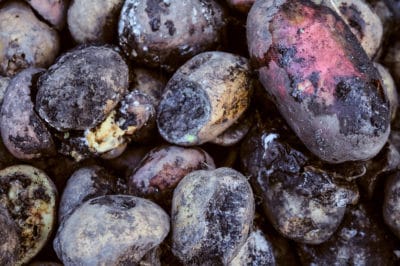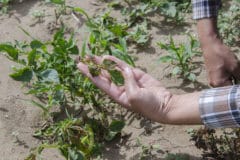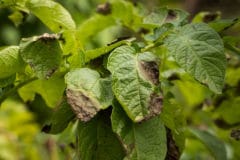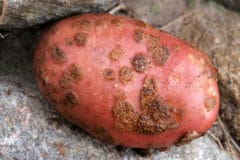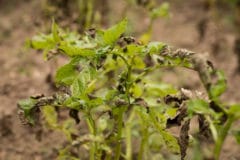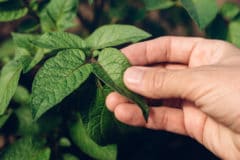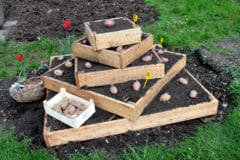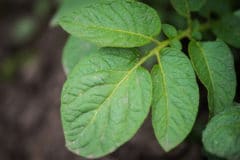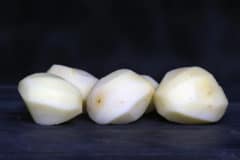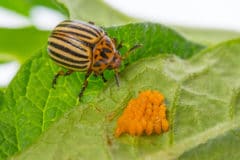About Fungal Diseases
Fungal diseases of the potato include blights, scurf, dry rot, powdery scab, wilt and blackleg. Some primarily affect the foliage, while others disfigure tubers and make them inedible or decrease yields. Fungal disease can occur only in the fields, primarily in storage or – as is the case with soft rot – at all stages of growth and storage.
Potato Blight
Although there are other fungal diseases of potatoes, for many gardeners, the number-one concern is blight. Late blight fungal disease was the cause of the devastating Irish potato famine in the 1800s. Early blight can be an equally serious problem. Blights, spread by spores, can devastate the entire crop and remain in the soil for years. Warm winters and wet summers can make the problem worse.
Resistant Varieties
While no potato is resistant to all fungal diseases, some have resistance to one or more – scab and blight resistance are most common. Resistant varieties include:
- IdaRose – early blight
- Defender – late blight
- Red Cloud – early blight
- Sangre – early blight and others
- Chieftain – scab
- Elba – resistant to multiple diseases.
Using a Fungicide
Conventional gardeners often treat their seed potatoes with a fungicide prior to planting. Organic gardeners in blight-prone areas do have another option. Mix 2 tablespoons of baking soda and ½ teaspoon of cooking oil or bleach-free liquid soap into one gallon of water. Mix well. Coat your seed potatoes with the mixture and also work it into the soil where you will plant.
Growing Conditions
Irrigation management is one of the major keys to managing fungal diseases in potatoes. Chronically wet soil promotes the growth of fungus. Don’t over-water your potatoes and ensure the soil drains well by mixing in plenty of humus and coarse sand prior to planting. Acidic soil will also help prevent some fungal diseases, such as late blight – keep the pH around 5 to 5.5.
Other Strategies
Good garden sanitation is one of the most important of all disease-prevention strategies. Always remove and burn any plant that looks diseased; don’t put it in the compost pile. Clean up weeds and burn or compost. Keep brush piles away from the garden. Don’t leave piles of cull potatoes in the garden. Ideally, you should rotate your potatoes, although in a small garden, this may not be much help.
